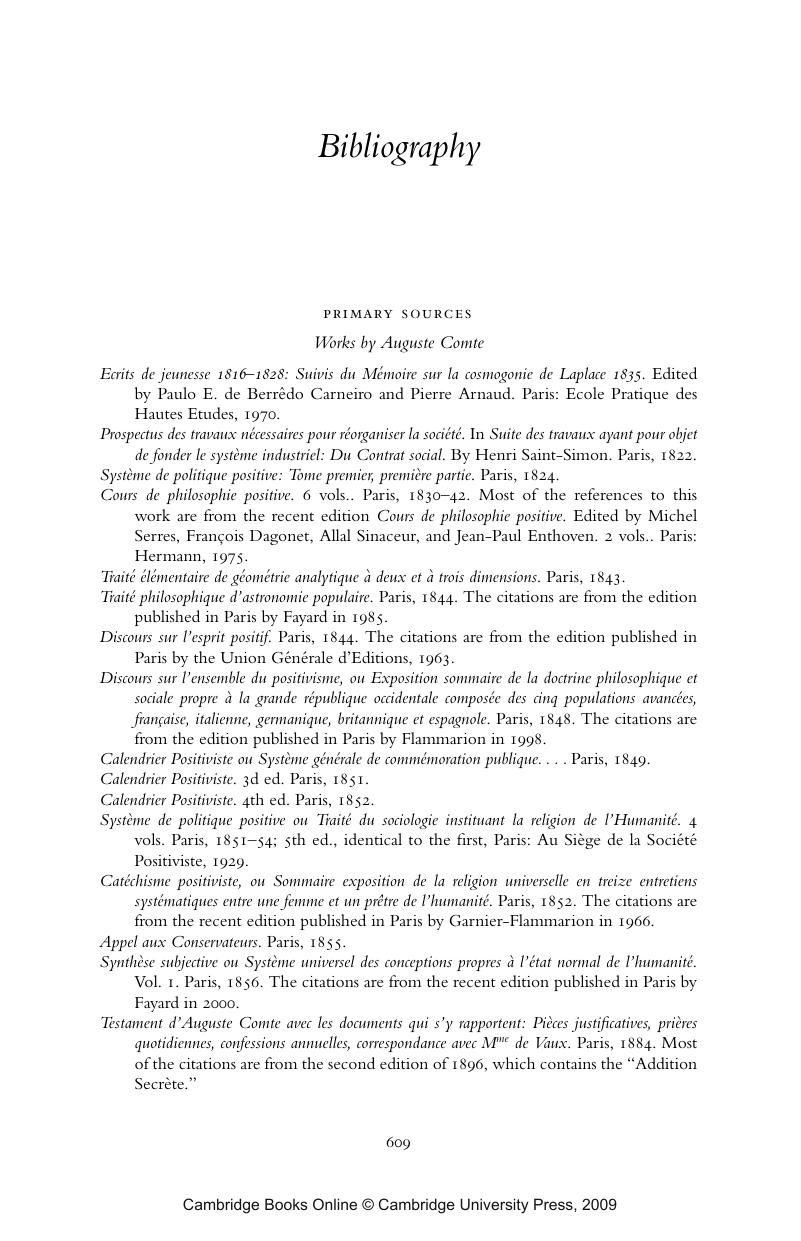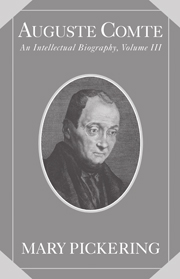Book contents
- Frontmatter
- Contents
- Acknowledgments
- Abbreviations and Notes
- Introduction
- 1 The Coup d'Etat and Its Consequences
- 2 Comte's Stumblings
- 3 The Vicissitudes of Positivism during the Early Empire
- 4 Système de politique positive: Natural and Social Philosophy
- 5 Système de politique positive: Comte's Philosophy of History
- 6 Système de politique positive: Comte's Utopia
- 7 The Last Years: Politics and Propaganda
- 8 The Last Flurry of Activity: The Testament and Synthèse subjective
- 9 The Death of the Great Priest of Humanity and His Influence
- Conclusion
- Bibliography
- Index
- References
Bibliography
Published online by Cambridge University Press: 06 January 2010
- Frontmatter
- Contents
- Acknowledgments
- Abbreviations and Notes
- Introduction
- 1 The Coup d'Etat and Its Consequences
- 2 Comte's Stumblings
- 3 The Vicissitudes of Positivism during the Early Empire
- 4 Système de politique positive: Natural and Social Philosophy
- 5 Système de politique positive: Comte's Philosophy of History
- 6 Système de politique positive: Comte's Utopia
- 7 The Last Years: Politics and Propaganda
- 8 The Last Flurry of Activity: The Testament and Synthèse subjective
- 9 The Death of the Great Priest of Humanity and His Influence
- Conclusion
- Bibliography
- Index
- References
Summary

- Type
- Chapter
- Information
- Auguste ComteAn Intellectual Biography, pp. 609 - 632Publisher: Cambridge University PressPrint publication year: 2009



